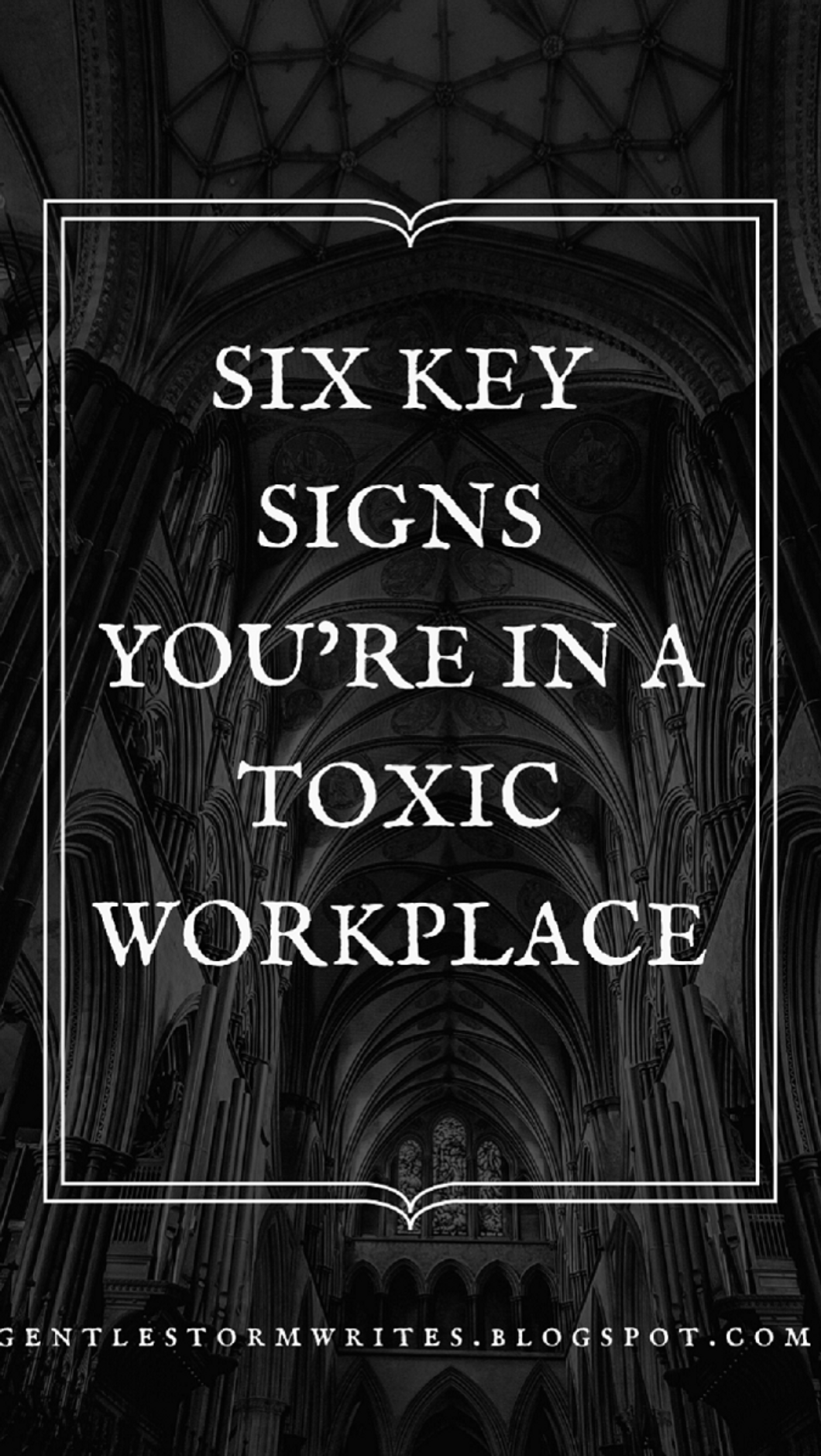After spending some time being unemployed, you'll be tempted to take any job you see. In modern societies, the time we spend in the workplace is not negligible. A third of our time disappears while we are engaged in tasks at our workplace.
Being happy at work is important to have good self-esteem and to feel fulfilled with ourselves.
However, on many occasions, the quality of employment is really low. When we speak of a toxic workplace. We refer to those positions in which a series of characteristics are fulfilled that negatively affect the psychological health of the employee. If the situation continues for some time, it is likely that obvious signs of psychological wear and tear will appear, and even health problems may appear. Listed below are signs to check out to detect a toxic workplace.
Key Signs of a Toxic Workplace
In this article, we are going to discover some signs that indicate that you are suffering the consequences of a toxic job. We will also warn you of some measures you can take to prevent the situation from being extended in time and you can redirect your work life. Here are the signs that indicate you're in a toxic workplace.
Signs #1: You don't feel like you are fighting for the same goals as your company
Psychologists who are experts in human resources are responsible for evaluating the level of satisfaction of employees within organizations. To perform this function, they use different variables and tests that allow them to analyse how an individual feels about the entity in which they work. They will also analyse the tasks you perform in your working day.
Those workers who express greater job satisfaction are more productive, and therefore this is positive for the company as a whole. Unfortunately, in the company culture, there are still many misconceptions about how to improve productivity, and some entrepreneurs completely neglect the human capital of the organization and the well-being of the workers, believing that only through punishment and threats will they perform their tasks correctly.
Several studies show that job satisfaction is positively correlated with the level of employee commitment to the company. Human beings are constantly influenced by our emotions, and if an employee is not connected to the values of the company or its practical operation, they are likely to be dissatisfied with their work environment. This low commitment to the company can lead to the idea of leaving it, a factor that correlates with high levels of stress and burnout and with low job satisfaction.
Signs #2: Communication problems
Communication is a crucial aspect in any company, not only for tasks to go ahead, but also to avoid conflicts, tensions, and dissatisfaction.
When we talk about communication, we are not referring only to interaction with customers and suppliers, but within the company itself. For example, the instructions given by superiors to their subordinates, both verbally and non-verbally, and how the latter interprets these instructions and their specific weight in the tasks and in the functioning of the organization in general. Poor communication can lead to misunderstandings and conflict, creating mistrust and a sense of little control.
Signs #3: Role conflicts
One consequence of miscommunication can be role conflict (or ambiguity). This creates confusion regarding the tasks and functions performed by the affected worker.
This can be evidenced when an employee is hired but is not properly informed of his role in the day-to-day running of the company. An ambiguous situation can then arise in which he does not what the company expects from him. It is a particularly uncomfortable situation and one that generates dissatisfaction.
Signs #4: Poor relationship with superiors
One of the most common problems that we can observe in most organizations is the bad relationship between employees and their managers. It is one of the biggest reasons for stress and burnout.
The reason for this bad relationship is often top-down. A superior exerts a negative influence on the group of subordinates, for which it ends up generating discomfort and negative comments among the latter, reinforcing the idea that there is an aggrieved group. An inappropriate or dishonest leadership style can create a toxic work environment.
Signs #5: Absurd or unedifying tasks
If in the previous points we have focused on pointing out some relational causes that can lead to a situation of profound job dissatisfaction, sometimes there are also cases of the tasks themselves that make employees feel disaffected towards the company and its operation.
Sometimes, if the employee feels that he is only working for money and does not experience any intrinsic motivation towards the task he performs, he will experience progressive disinterest. In these types of cases, the advice of human resources experts is that the employee must have enough courage to step out of the comfort zone and seriously rethink their future.
Signs #6: Poor working conditions
Not all companies are able to provide motivating salaries to their employees. This is especially serious after the economic crisis.
Many employees endure abysmal working conditions, with below-minimum wages, or marathon days of more than eight hours, just because of the panic of losing their job. This pressure can generate irritability, exhaustion, burnout and anxiety, among many other physical, and psychological symptoms.
Are you in a toxic workplace? What are you experiencing and the signs you're seeing? Comment below.


















